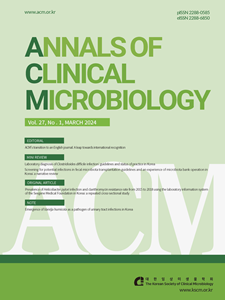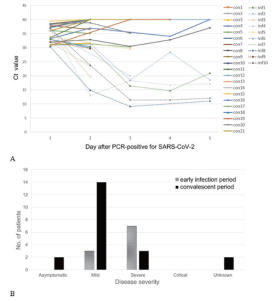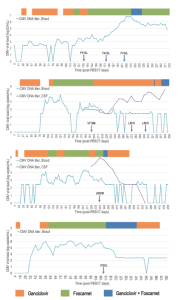Evaluation of a Rapid Enrichment-PCR Method for the Detection of vanA Vancomycin-resistant Enterococci in Fecal Specimens
Original article PDF Sollip Kim1, Heungsup Sung1, Hong Sun Jeon1, Suk Ja Park1, Sang-Hyuk Park2, Mi-Na Kim1 1Department of Laboratory Medicine, Univertisy of Ulsan College of Medicine and Asan Medical Center, 2University of Ulsan College of Medicine, Seoul, Korea Corresponding to Mi-Na Kim, E-mail: mnkim@amc.seoul.kr Ann Clin Microbiol 2007;10(1):44-48.Copyright © Korean Society of Clinical Microbiology. Abstract Background: Rapid and accurate surveillance is crucial in controlling vancomycin-resistant enterococci (VRE). Culture-based surveillance takes more than 4 days and direct polymerase chain reaction (PCR) is rapid but compromised by a low sensitivity. In this study, we evaluated the performance of an enrichment-PCR method for vanA VRE surveillance. Methods: In July 2006, 100 fecal specimens were inoculated to Enterococcosel agar (EA) and Enterococcosel broth (EB) containing 6μg/mL vancomycin. After 1 or 2 day-incubation bacterial pellets were obtained from 1 mL of blackened EB and VanA PCR were performed with DNA extract of the pellets (EB+PCR). Blackened EB were also




